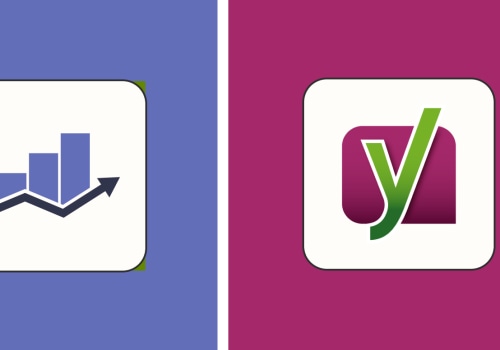Are you looking to get the most out of your WordPress website? SEO is a great way to increase your website's visibility and drive more traffic. But how do you optimize WordPress for SEO? In this article, we'll discuss the best practices for optimizing your WordPress website for search engine optimization (SEO).SEO friendly URLs contain words that clearly explain the content of the page, and are easy to read. The best SEO plugins can help you create URLs that are optimized for search engines. Additionally, you should use an H1 header on each page to give context about what your page is about to both users and search engines.
Think of it like the title of a book. Best practices generally require the use of an H1 heading (the title of the page), but you should also use H2 - H6 headings; they don't give structure to your content, but they do help split up the text and make it easier to read. If your H1 is the title of the book, the H2s are chapters, with subsequent tags that act as subtitles. Page headers are a great place to include your main keyword and page variants, but don't overdo it and never force a keyword into a place that doesn't fit naturally. Caching is also important for SEO.
WordPress recommends using W3 Total Cache, WP Super Cache or Cache Enabler. Fortunately, since Yoast 11.0, a complete structured data graph is created for each post or page on your site, but there are cases where you'll want to mark specific blocks within WordPress. You can do this by creating a new block by choosing a “Yoast Structured Data Block”, which you can read more about here. The SEO of WordPress also means that your site must provide the best content on the chosen topic. People are looking for attractive, reputable articles and reliable answers to their questions.
Writing high-quality content for your WordPress site starts with your unique ideas or your distinctive vision of a particular theme. But it also means presenting these ideas in a well-structured and accessible way. This will help you attract the audience you're looking for and keep them engaged. You can view these settings in your WordPress editor, listed as Title 1, Title 2, etc. By default, every link you create in WordPress is a dofollow link.
Google tracks these types of links when it analyzes your site. These links help create authority that affects your rankings, since the link juice is moved away from the link page. Do you want to get more traffic and better rankings for your WordPress website? Meta tags are an important part of SEO. By default, they are not included in WordPress, but you can include them manually and our article on Meta Tags in WordPress guides you through the process of adding meta tags to your WordPress site. We have a Google tracks these types of links when it analyzes your site. These links help create authority that affects your rankings, since the link juice is moved away from the link page. Do you want to get more traffic and better rankings for your WordPress website? Meta tags are an important part of SEO. By default, they are not included in WordPress, but you can include them manually and our article on Meta Tags in WordPress guides you through the process of adding meta tags to your WordPress site. We have a blog post with “managed WordPress hosting” in the meta description, so Google bolds this relevant keyword for your search term. Specifically, CaniRank analyzed several factors that influence SEO, such as whether longer content generates more backlinks and what happens to the rankings of those on the third and fourth pages.
WordPress can be an excellent content management system for SEO when it is properly configured and optimized for search. Before hiring them, ask the SEO expert to give you a summary of the costs to avoid incurring additional charges. If you want to structure your content differently, WordPress also allows you to create custom taxonomies. When creating a WordPress website, you have already taken a big step, since the platform is well optimized for search engines. A landing page can increase the conversion rate of your WordPress site by encouraging visitors to take the desired action, such as subscribing to a newsletter or downloading an ebook. Adding a sitemap to WordPress is simple: you can do it with a specific plugin like Google XML Sitemaps, or through a comprehensive SEO tool like Yoast SEO. You shouldn't think that WordPress is a magic weapon without more effort; it takes time and effort.
WordPress offers you a number of different options for how URLs are structured, and you need to make sure you're using the most SEO-friendly option. The SEO Rank Math plugin has a user-friendly interface and a simple configuration process that comes in three modes: easy, advanced and custom. Check out the following WordPress SEO tips to optimize your content and improve its search engine rankings:
- Create SEO friendly URLs
- Use H1 - H6 headings
- Enable caching
- Add meta tags
- Create custom taxonomies
- Create landing pages
- Add sitemaps
- Optimize URLs











